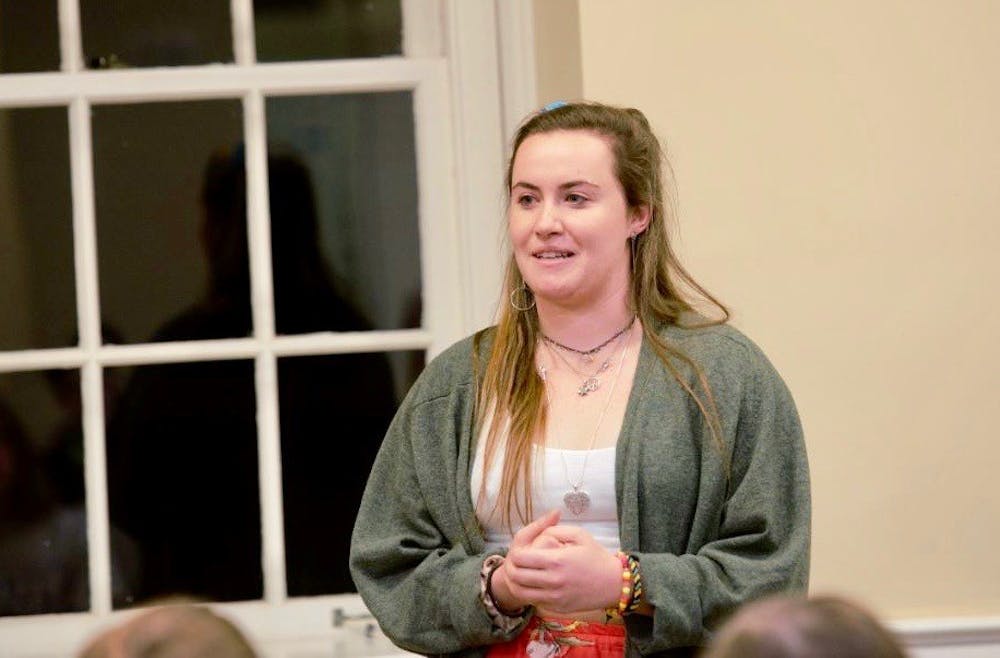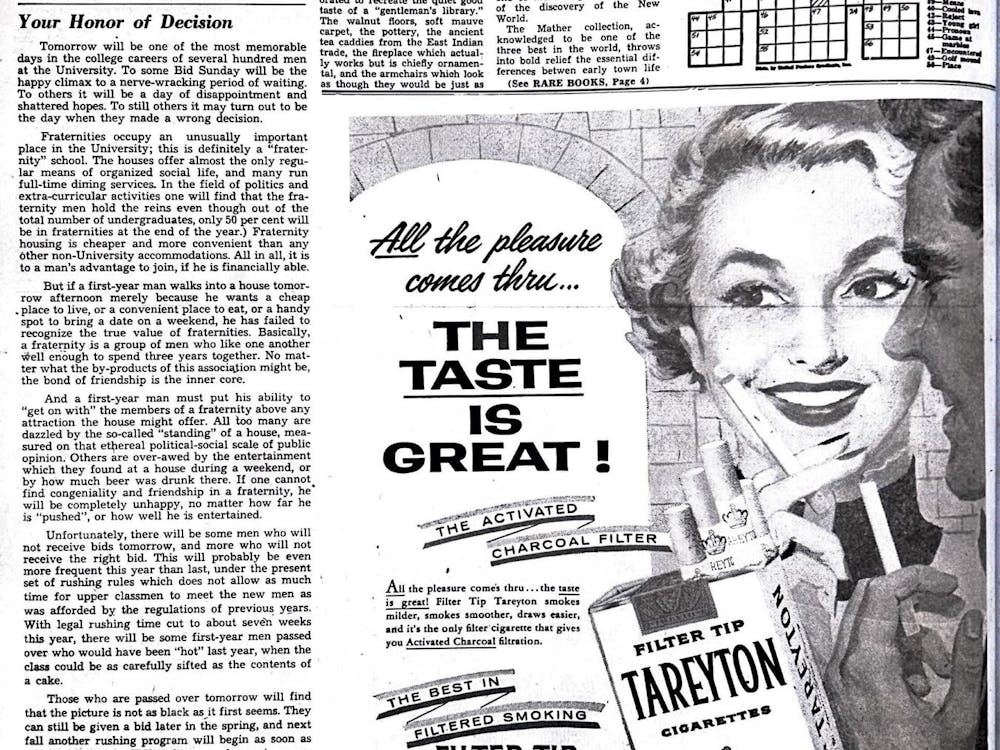Alex Cintron, a fourth-year College student and Student Council president, began Tuesday evening’s Student Council general body meeting with a moment of silence for the 11 victims of a massacre at a synagogue in Pittsburgh Saturday, when an armed gunman opened fire on a Jewish congregation. Student Council went on to unanimously pass a resolution stating its support for the Jewish community both at the University and worldwide.
The resolution also encourages students to participate in the upcoming Week of Reflection and Response hosted by the Jewish Leadership Council, which has included events such as a letter writing campaign to the Jewish community in Pittsburgh and fundraising for the Tree of Life Synagogue.
During the period for public comment, Galen Green, Fourth Year Trustees president and a fourth-year Commerce student, addressed the general body about the measure. She said the attacks are situated in a larger context of rising levels of anti-Semitism in the U.S., especially since the white supremacist rallies of Aug. 11 and 12, 2017 in Charlottesville and at the University.
“While this is easily the most horrific anti-Semitic act in our lifetime, anti-Semitism is something a lot of Jewish students face daily, and that’s seen an incredibly incredibly high uptick in recent years in the world, in the country and at U.Va.,” Green said. “Nazis walked up the Lawn 14 months ago.”
Green, who is Jewish, added that she hoped the representatives would support the resolution.
During the legislative session Allison Kammerman, a third-year College student and a representative for the College, who is also Jewish, read the entire bill aloud to the general body.
“I think it’s important that you hear someone who this has affected,” Kammerman said. She cited personal connections to anti-Semitic incidents that have occurred at or near the University, including anti-Semitic symbols that were graffitied on the walls of Grandmarc, which is an off-Grounds apartment complex where many University students live, in October 2016.
The resolution passed the representative body with a vote of 25 in favor, none opposed and two abstentions.
Student Council also approved a resolution opposing the University’s decision to schedule third-year class registration on Election Day this year. The bill also calls upon the administration to refrain from scheduling undergraduate classes on election day in future years.
The original version of the bill stated, “The Student Council Representative Body condemns the University for creating another barrier to voting through this time conflict which requires students to now incorporate course registration into their plan to vote.”
Currently, third-year undergraduate students are scheduled to enroll in classes via the University’s online Student Information System Nov. 6. Enrollment times for students take place throughout the day, and polls are open from 6 a.m. to 7 p.m. election day.
Isaac Weintz, a third-year College student and the Legislative Affairs Chair for Student Council, provided some context for the resolution.
“I think the University kind of dropped the ball on this one a little bit, they didn’t really consider holistically what that day really entails for students,” Weintz said. “We have classes, we have a lot of things going on, and the more things that we add to Election Day, the more likely that some students may not make the effort to go vote.”
Before the Representative Body voted, Lukas Pietrzak, a fourth-year College student and representative for the College, asked whether anyone from Student Council had met with the registrar’s office to discuss the problem.
“We condemned the the neo-nazis, we condemned people who have done racist things at the University, this just seems like someone in the registrar’s office really messed up,” Pietrzak said. “Instead of condemning them in a resolution, why don’t we go talk to them first?”
Ellie Brasacchio, a third-year College student and Chair of the Representative Body who co-sponsored the resolution, said that she thought passing the resolution would facilitate a conversation with the Office of the Registrar.
“I think that is important to go and talk to the registrar’s office, but I think it would go a long way if we passed a resolution beforehand saying the entire Representative Body was against the scheduling,” Brasacchio said.
Cintron added that Weintz plans to meet with the Office of the Registrar — which manages class enrollment and scheduling — after the election. Weintz said the window for action to change this year’s signup dates had passed, but added that Student Council would lobby the University to avoid scheduling course registration on Election Day in the future.
Second-year College student and representative for the College of Arts and Sciences Avery Gagne, who co-sponsored the resolution, agreed to a friendly amendment to remove the word “condemn.”
The final version of the bill reads, “The Student Council Representative Body disapproves of the decision of the University of creating another barrier to voting through this time conflict which requires students to now incorporate course registration into their plan to vote.”
The bill also urges the University to reschedule Fall 2019 course registration times and all registration times to come, so as not to have them fall on Election Day.
The bill passed with a vote of 22 in favor, none opposed and five abstentions.
The Student Council also unanimously passed a resolution at its Sept. 4 meeting urging University faculty to refrain from scheduling exams on Election Day this year. The resolution’s passage came after the Legislative Affairs Committee partnered with College Republicans and University Democrats in August to circulate a petition to faculty members, asking they refrain from holding “significant exams” during Election Day this year. More than 60 faculty members have already signed the petition.
At the September meeting, Weintz said that moving exam dates is a good first step toward the ultimate goal of not holding classes on Election Day.
Student Council also voted Tuesday with 25 in favor, none opposed and two abstentions to pass a resolution in support of the “We Are Not Invisible” report, which was released last Thursday by the Asian Leaders Council. It calls for increased representation of Asian Americans in faculty and in programs of study.
The resolution commends the students who released the report, states Student Council’s support for the Asian American community and encourages the University to diversify its faculty.
According to the report, 14 percent of the student population in the College identifies as Asian, but 8.46 percent of the faculty identifies as Asian.






